Written by Guest Writer Owen Lystrup
In all the challenges that come along with overlanding—or any outdoor activity for that matter—the hardest can be just getting out there. Be it a lack of funds, a hectic schedule, family responsibilities or even injuries, the excuses to not go out in the wild can seem endless if you let them.
Overland Bound member Neil Hall (OB #2420, @bwildjournals) has had his share of excuses to not go, but something calls.
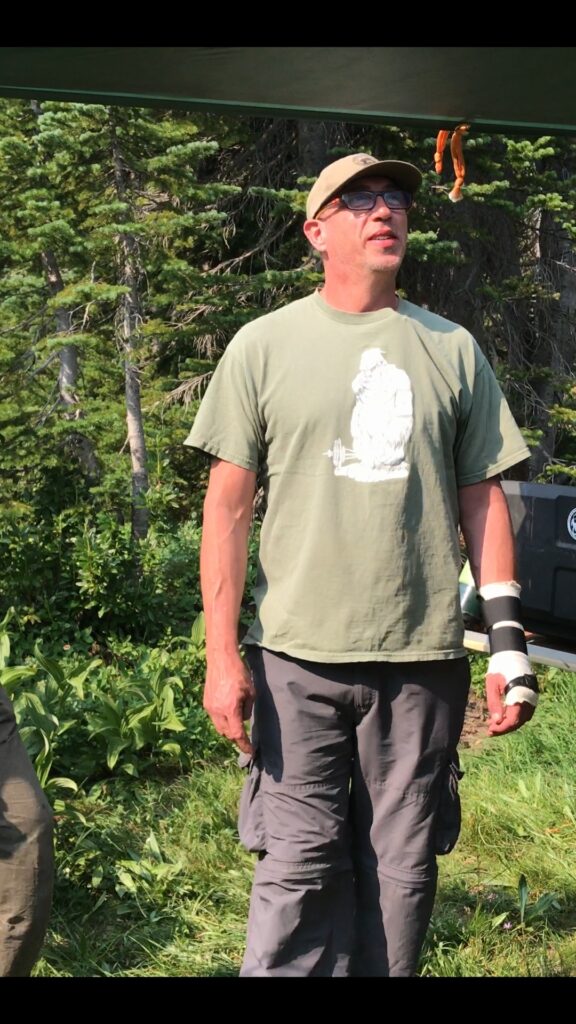
Neil takes a very ‘no excuses’ approach to getting out and enjoying the outdoors. Being in the Pacific Northwest near Seattle, the wild is near and abundant, but challenges throw Neil’s way have almost prevented him from getting out at all.
“There’s been a couple times lately that I’ve wanted to throw in the towel and say, ‘forget it,’ because it’s just too hard,” Hall said in an interview.
For Neil, getting out in the wild is something he’s revered since he was young and took trips with his father. In the past, it’s been hard for him to get outdoors because of injuries, one of which cost him his job. Neil worked as a maintenance mechanic at the University of Washington, and one day walking through the shop his boot caught a stair just enough to cause a pretty severe fall that caused a fracture in his calcaneus (the heel bone).
Anyone who’s had one will likely say that a fracture in the foot is one of the toughest recoveries, especially if your work or hobbies require a simple action like walking. For Neil the recovery was definitely a hard one.
“The healing process took a long time, and it didn’t heal the way it was expected to,” he said. After a long recovery period, the university made attempts to work with him and keep him employed, but ultimately let him go, which put Neil on a very tightly fixed income.
During Neil’s walkaround video featured on the Overland Bound YouTube channel, you can see he’s wearing a brace on his wrist. After healing from the heel fracture that left him without a job, Neil attended an Off the Grid rally. On the return trip from the rally, Neil fell from the ladder of his CVT rooftop tent.
“I fell half the height of the ladder, probably three or four feet. But I’m 220 pounds, and I landed on my wrist, and it didn’t like that very much,” he said.
The rest of the trip home, Neil said instead of climbing into the RTT, he slept under the tailgate of his truck.
“At first I thought, ‘Oh I’ll be fine,’” he said. “’I’ll just put some ice on it.’” When he was home and could have a doctor look at the wrist, he was told it wasn’t going to heal quickly. “My [physical therapist] told me I did one of the most destructive injuries you can do to a wrist.”
The healing process took over two years and required two surgeries. The doctor also told him if he has one more bad fall or a bend of the wrist the wrong way, he’s going to have to get another surgery that will be a full fusion. “You won’t like that,” the doctor added.
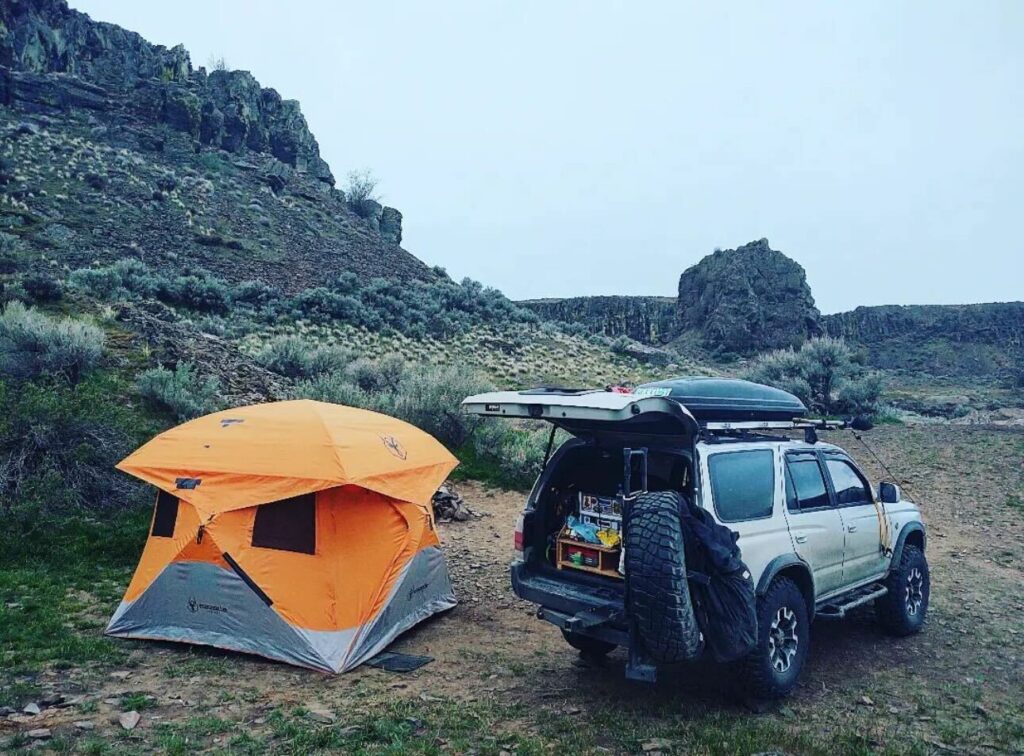
He now travels with a Gazelle Tent to keep low to the ground and avoid any further injuries to his wrist.
Neil has been living off a budget that makes it difficult to keep a hobby like overlanding going, let alone doing any kind of build project on a rig.
“If I can wing a tank of gas, that’s usually when I go,” Neil said.
Neil also has a creative mind that drives him. He finds ways to repurpose materials for his truck that can get him amenities he’s looking for. Projects he’s worked on in the past include a custom slider box made from a repurposed entertainment center he found at a Goodwill.
His truck features a navigation Ram mount he got off a clearance shelf for $15. He also has one for his phone, which he bought for $5. The CVT tent—Neil’s biggest splurge that he sold for worry of another fall that would permanently cripple his wrist—was protected from branches and other trail debris with an old snowboard he mounted to his truck’s rack. And rather than paying for an expensive side awning, he used a custom rigged tarp cut to six-foot sections and held up with poles he bought from a hardware store.
“I have a lot of ideas,” he said. “Some of them are good, some not so good. I wanted the fancy rigs I see in videos, but I just can’t afford it.” Rather than go without, Neil just finds ways to improvise.
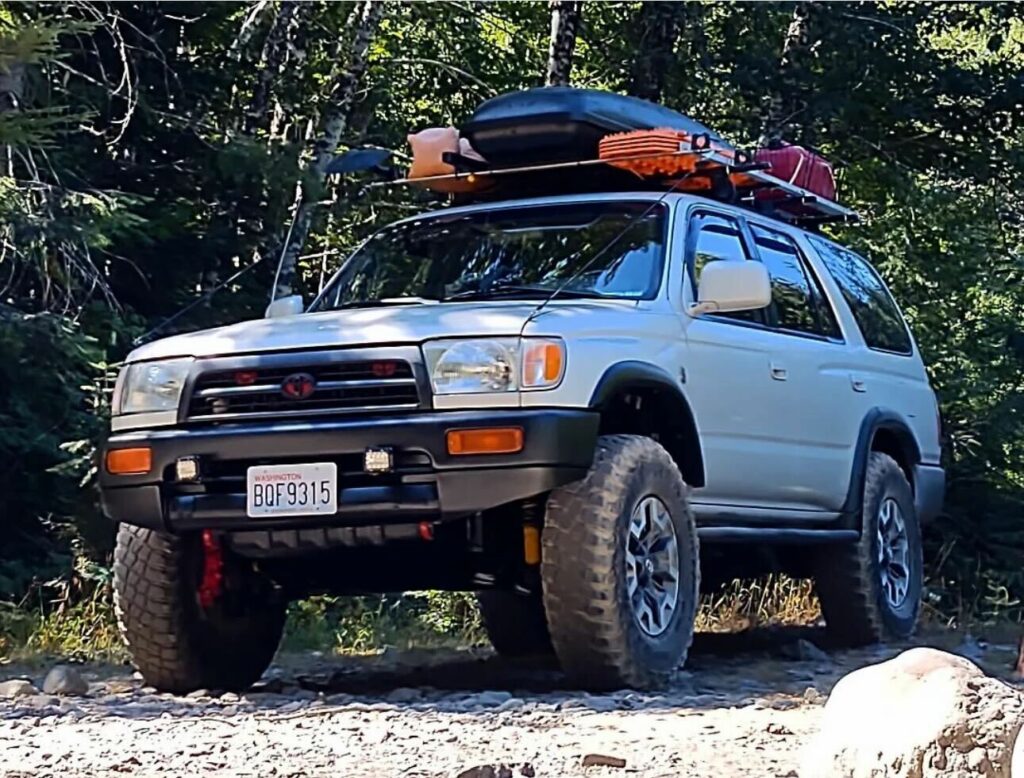
You can now find Neil trekking through the PNW in his 4 Runner.
His creativity, he said, has just always been there. “I used to draw a lot, and I got pretty good,” he said. “I started taking photos and doing videos for YouTube and Instagram for that creative outlet. When I don’t have what I need, I think about what I need to buy or what I could find to make it.”
In addition to exercising his creative mind, Neil found the outdoors helped his state of mind as well. He was in a prolonged depressive state when he heard about an Overland Bound meetup nearby in August 2016.
“That’s when I first crashed the party,” he said. Neil said he was hunting for a tent online when he came across an Overland Bound video, which led him to the meetup.
“I was too shy. I don’t talk to people ever. But some kind of leap-of-faith pushed me to go, and I crashed the party, so to speak.” Neil said he felt a bit like an outsider when he arrived, but soon met another Overland Bound member who greeted him with a hug.
“He told me where to camp, told me not to worry about anything, and I signed up for Overland Bound the day I got home from the trip.”
“Overland Bound helped me more than they will ever know,” he said. “I can’t even say in words what Overland Bound did for this person.”
He’s been trying to keep the good tidings going, paying it forward by improving the world on each trip he’s able to take. “The Trail Guardian program is a big deal to me. In the Pacific Northwest, homelessness is a big problem. Not only is it in the cities, but it’s moved into the forest. Some of these people when they leave, they leave everything behind. A couple months later, the animals have gotten to it and taken stuff here and there. It gets to the point where no one wants to camp there.”
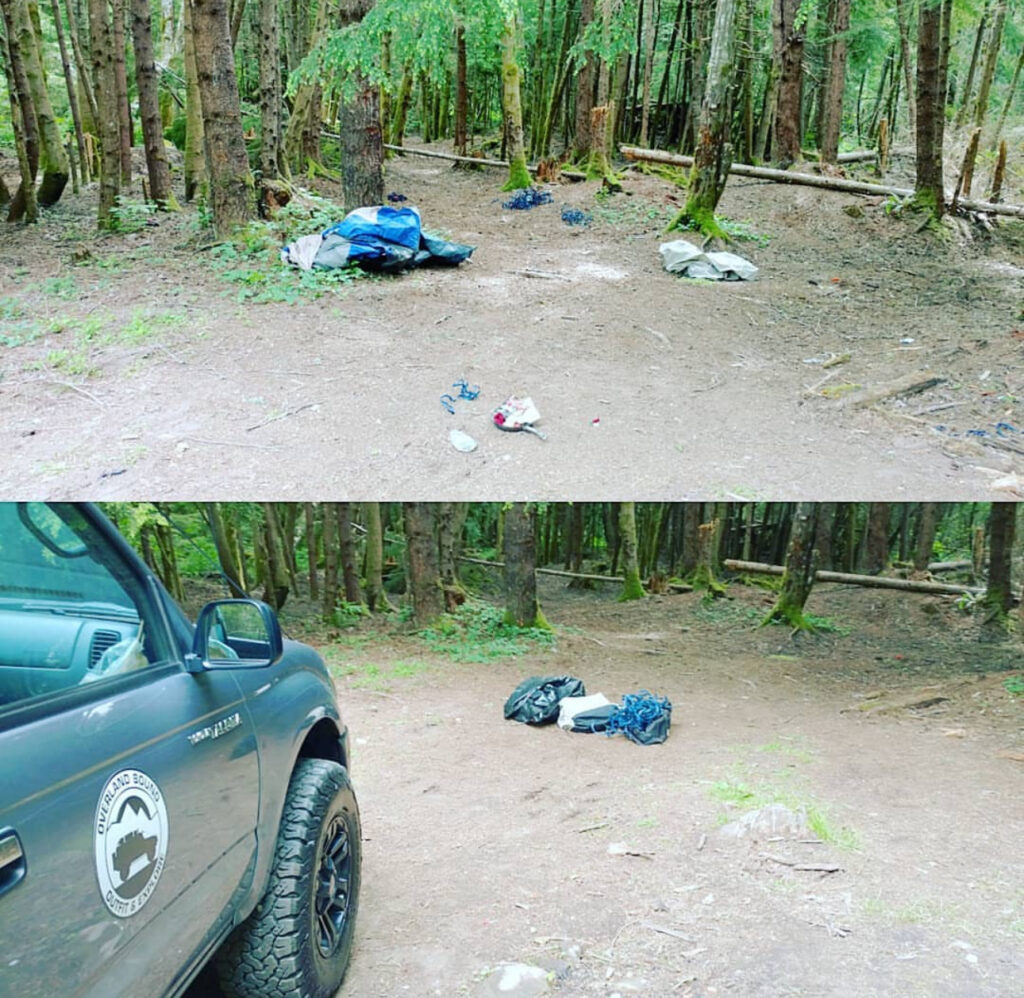
Neil said when he goes, if he sees a campsite that’s obviously been deserted, he fills his truck with gear, garbage and anything left behind.
“That’s my goal when I go out. I try and leave it better than I found it.”
A big thank you to Neil for sharing part of his story and for being such a postitive member of the Overland Bound community.

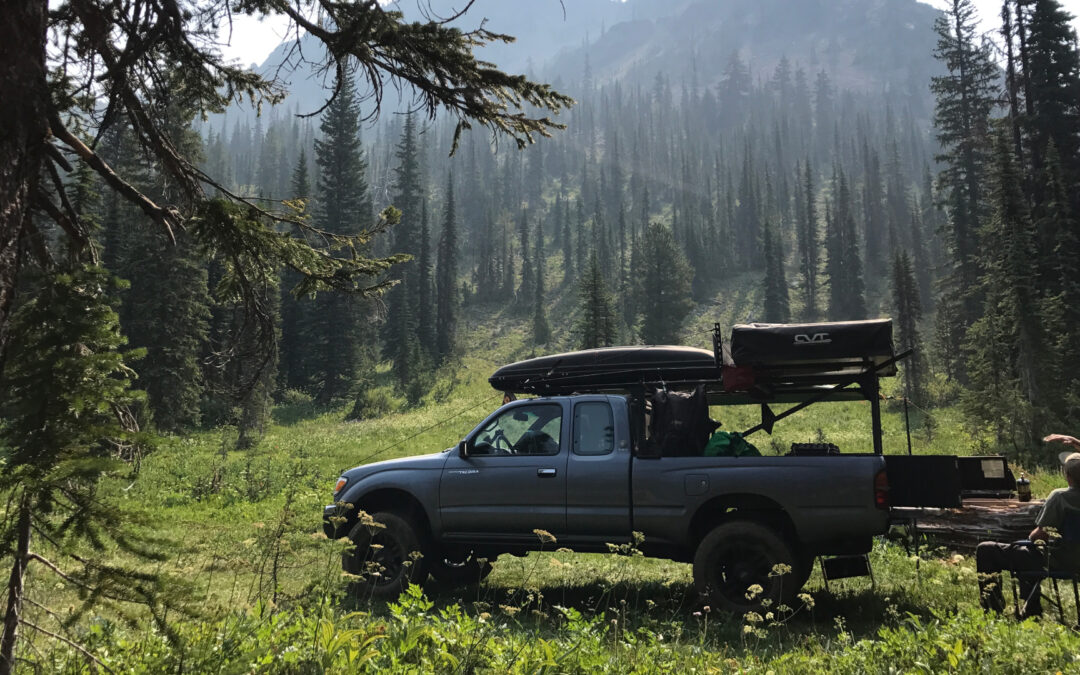
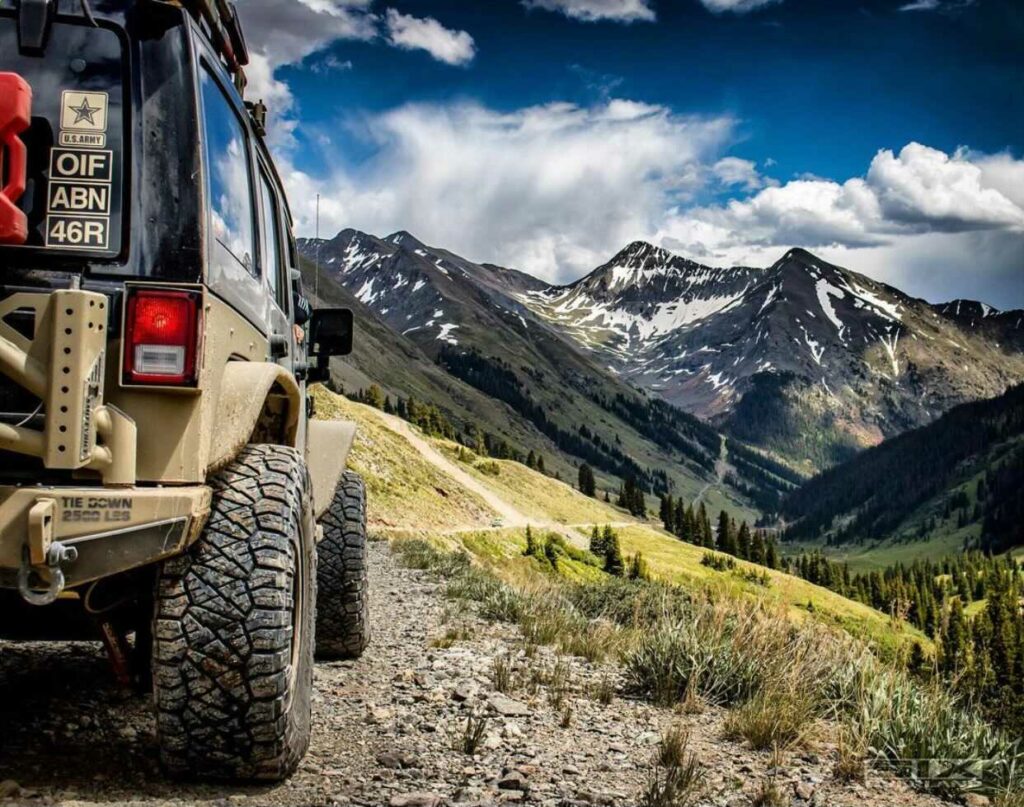
Neil is my son, and I am very proud of him, so happy he is having a good time.